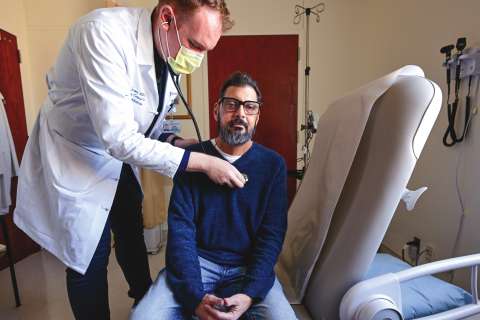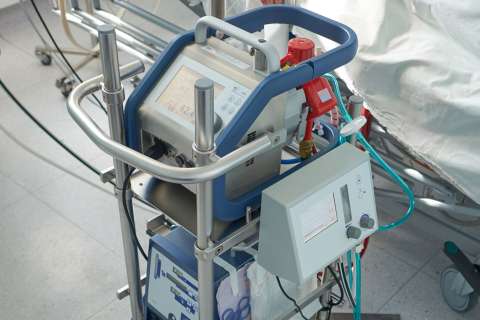UCLA Research Alert
FINDINGS
A UCLA Health research team has helped define and characterize a rare bowel obstruction that affects premature infants, known as meconium-related obstruction of prematurity (MROP). Distinct from Hirschsprung disease and meconium ileus of cystic fibrosis, MROP had not been well described in medical literature until recently.
Through retrospective reviews, national database studies and multi-institutional collaborations, investigators found that premature infants with MROP were more likely to require surgery, faced longer hospital stays and incurred higher health care costs compared with other newborns.
The team’s work has been presented at major international conferences including the Pacific Association of Pediatric Surgeons (2023 in Bali, 2024 in Hong Kong), the Association for Academic Surgery Academic Surgical Congress (2025 in Las Vegas) and the American Pediatric Surgical Association (2025 in Montreal). Findings have been published in Journal of Pediatric Surgery Open (2024), JAMA Network Open (2025) and Journal of Pediatric Surgery (2025).
BACKGROUND
MROP occurs when thick, sticky meconium, the first stool produced by newborns, blocks the intestine of premature infants. Unlike other forms of neonatal obstruction, MROP appears to be uniquely linked to prematurity and the challenges of an underdeveloped gastrointestinal tract. UCLA researchers hypothesize that poor motility in the immature gut, thickened meconium and weaker abdominal wall muscles contribute to the condition.
With premature births on the rise and survival rates improving for extremely preterm infants, recognition of MROP is increasingly important.
METHOD
The research began with clinical observations at UCLA Mattel Children’s Hospital, followed by a retrospective review of cases. Investigators then partnered with the UCLA CORELAB to analyze the National Inpatient Sample, the largest publicly available database of hospital discharges in the United States.
The study later expanded to the University of California Fetal Care Consortium, which unites UC medical campuses to share expertise in neonatal surgery. This multi-institutional analysis confirmed that the degree of prematurity was strongly associated with the likelihood of requiring surgical intervention. Findings were presented at APSA 2025, with a manuscript now pending publication.
IMPACT
By better defining MROP and its risks, UCLA surgeons and collaborators are laying the groundwork for a quality improvement pathway aimed at preventing and managing this condition. The ultimate goal is to improve outcomes for vulnerable premature infants and inform care strategies for children with gastrointestinal conditions more broadly.
“This work shows how careful clinical observation, coupled with large-scale data analysis and collaboration across institutions, can directly translate into improved care for newborns,” said Dr. Daniel DeUgarte, pediatric surgeon and clinical professor of pediatric general surgery at UCLA.
AUTHORS
Daniel DeUgarte, MD, pediatric surgeon and clinical professor of pediatric general surgery
Kara Calkins, MD, neonatologist and professor of pediatrics
Jordan Rook, MD, PhD, general surgery resident and National Clinical Scholars Program fellow
Collaborators from UCLA CORELAB and the University of California Fetal Care Consortium






